Japan sounds the alarm on Queensland’s new coal tax
In an unprecedented step, Tokyo warns royalty hike had forced a rethink on whether the state remained a ‘safe’ investment destination.
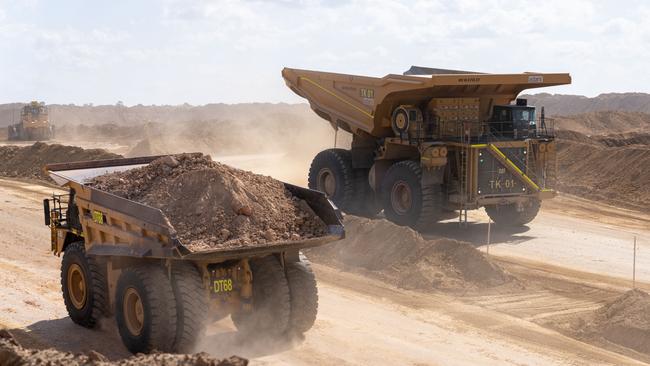
Tokyo has sounded the alarm on the Queensland Labor government’s new tax regime for coalminers, with the Japanese ambassador to Australia warning that a steep royalty hike had triggered a rethink about whether the state remained a “safe and predictable” investment destination.
Shingo Yamagami used a speech to the University of Queensland on Wednesday to say Japanese mining companies invested in the state’s coal industry — including Idemitsu, Mitsubishi and Mitsui — had already paid billions of dollars in tax and royalty rises unveiled in the June 21 budget risked damaging “trust and goodwill” built up over years.
Mr Yamagami warned that fallout from the move could extend beyond the coal sector to vital new areas of co-operation, including efforts to shift towards cleaner energy sources and reduce carbon emissions.
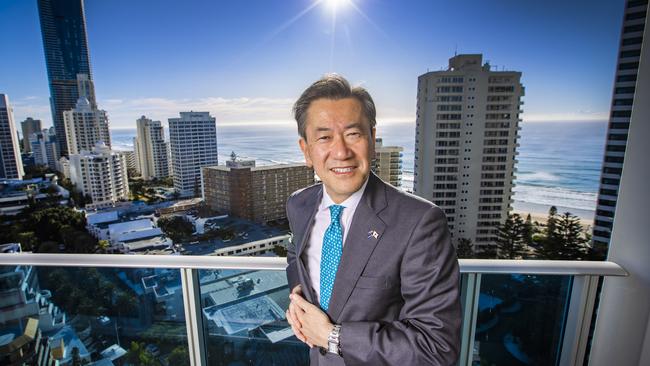
“Some Japanese companies are already questioning whether Queensland will continue to be the safe and predictable place to invest they had known for decades,” Mr Yamagami said.
“I fear that this may have widespread effects on Japanese investment beyond the coal industry. The companies I mentioned earlier are involved not only with minerals, but hydrogen, infrastructure and a variety of cutting-edge technologies.”
Mr Yamagami said the “huge royalty rate hike on locally mined coal” in Queensland was an issue of “great concern” and key players in the sector felt they were “not consulted on such a significant change and that they were taken by surprise”.
“Make no mistake: this is a huge shock for Japanese companies,” he said. “The future of the successful partnership between Japanese businesses and Queensland, as a competitive investment destination could be at great risk.”
Federal Resources Minister Madeleine King said the setting of coal royalties was a “matter for the Queensland government” but added that the Albanese government was committed to “working with international partners to address current global challenges.” She said there was “always a balance to be struck” in weighing up the return to Australians from the resources sector, but she intended to take a “consultative approach when considering reforms”.
“Australian energy resources, particularly LNG and, in the future, hydrogen, lithium and rare earths, will help our trading partners meet their net-zero ambitions,” Ms King said. “I look forward to continuing productive conversations with international counterparts … at next week’s Sydney Energy Forum.”
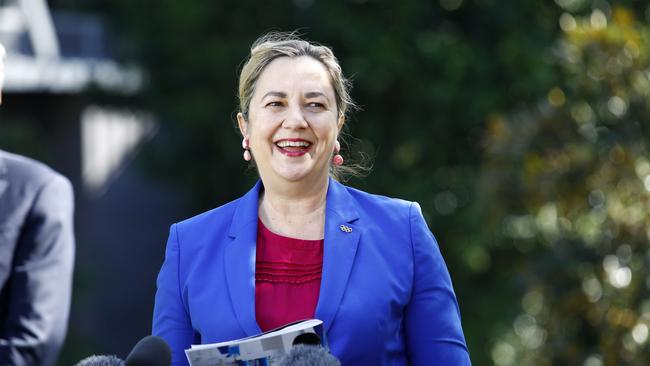
A spokesman for the Queensland Labor government said the state had maintained good relations with Japanese coal companies during previous increases to coal royalties in 1994, 2001, 2008 and 2012. “Queensland is committed to continuing to work closely with Japanese business partners across existing and new industries into the future,” the spokesman said.
As of July 1, the highest coal royalty rate in the state lifted to 40 per cent. This rate applies to coal prices of above $300 a tonne. Two other new tiers are also in operation: a rate of 30 per cent for prices above $225 a tonne and 20 per cent for prices above $175 a tonne. Previously the top rate was 15 per cent.
Mr Yamagami said this was already “significantly higher” than in NSW and Western Australia.
“This will have a huge impact on mining companies’ bottom line, including Japanese companies that have operated in Queensland for decades,” Mr Yamagami said. “The state budget estimates that the new arrangements for coal royalties will add $1.2bn in royalty revenues, bringing the total to $5.5bn. This is huge but could be a conservative estimate.”
Queensland Resources Council chief executive Ian Macfarlane said Mr Yamagami’s remarks were “unprecedented”.
He forecast coal producers could pay a total of almost $15bn in royalties in 2022-23.
“It’s not just the Japanese companies,” Mr Macfarlane said. “Every international investor who looks at the language the state Treasurer has used in the last two weeks … are just completely shocked. There is going to be more of this.”
Queensland Treasurer Cameron Dick said the new royalty regime would ensure Queenslanders received their “fair share” of record profits being generated by coal producers.
“All of that $1.2bn, and more, will be going into regional Queensland,” Mr Dick said in his budget speech.
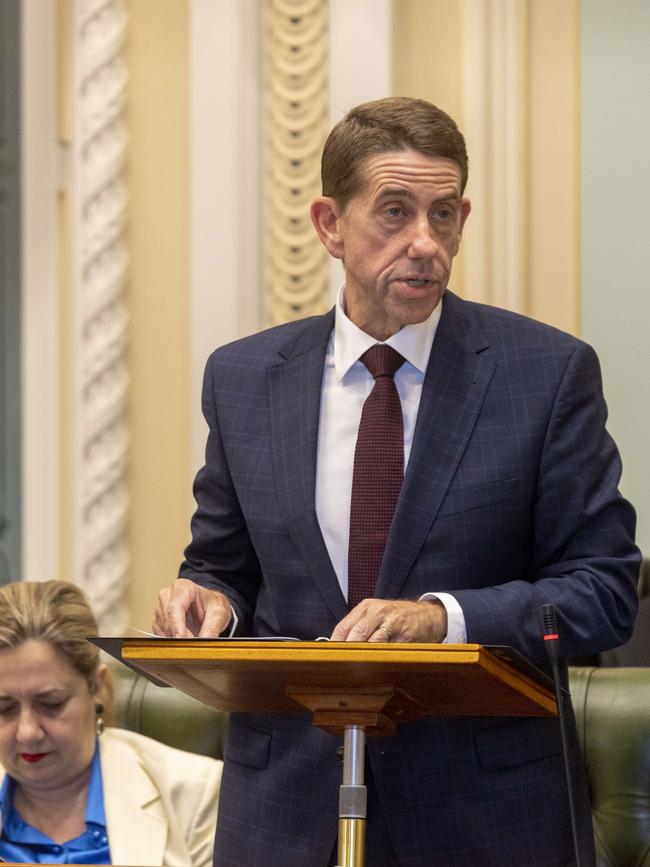
“We will build a new hospital for Moranbah. We will expand Mackay Hospital, Townsville Hospital, and Cairns Hospital.”
Mr Dick highlighted multinational coal companies, warning their foreign shareholders would not like the new royalty system.
Mr Yamagami said Japanese mining companies had helped build airports, sea ports, rail and other infrastructure while creating thousands of jobs.
“Every year, Japanese companies pay their fair share,” he said. “Japanese trading giant Mitsubishi paid $1bn worth of tax in 2018, making them the eighth-highest taxpayer in the country. And they were followed by Mitsui at number nine.
“The BHP-Mitsubishi Alliance alone has created over 10,000 jobs in Queensland … Some companies have roots in Australia that stretch as far back as the 1960s and have been here for decades.”
Mr Yamagami said total Australian tax payments by Japanese coal companies exceeded $2bn and noted that Japanese businesses had stood by Australia when it faced economic coercion from China just as Australia had stood by Japan during tough times.
He said Japan and Australia were natural economic partners and allies and, to make the most of new opportunities, “we need to maintain this shared relationship of trust, and a strong mutual understanding”.
“I therefore sincerely hope that the Queensland government will consult more extensively with Japanese companies, its close partners and allies, as part of its economic decision-making in the future,” the ambassador said.


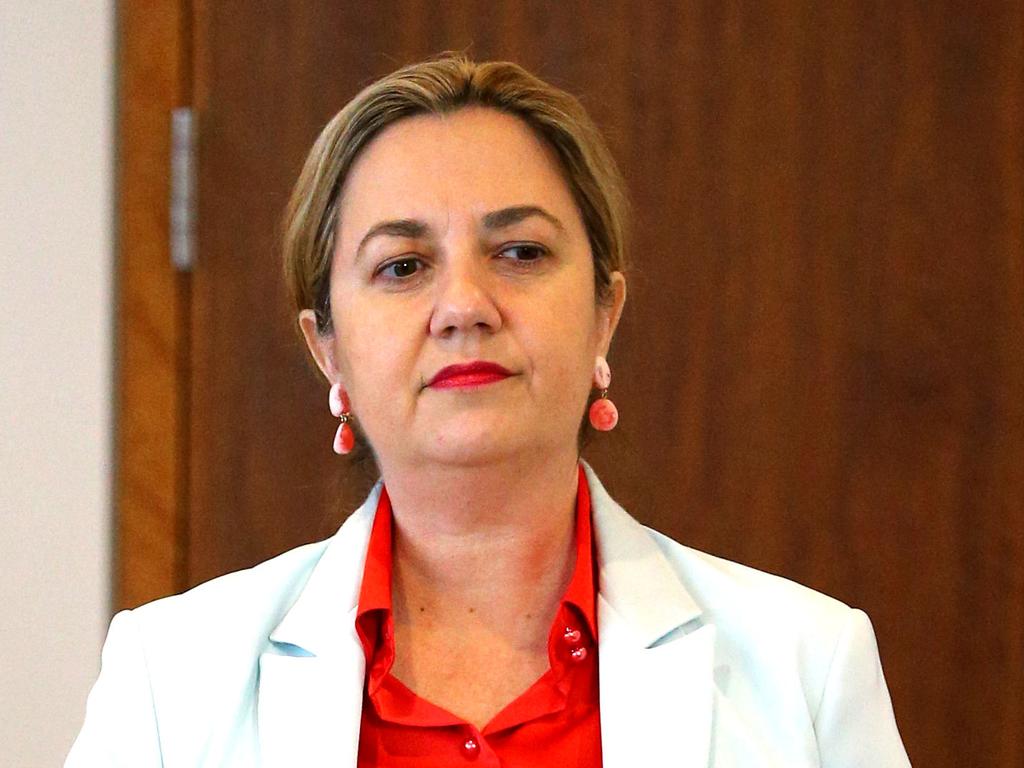




To join the conversation, please log in. Don't have an account? Register
Join the conversation, you are commenting as Logout